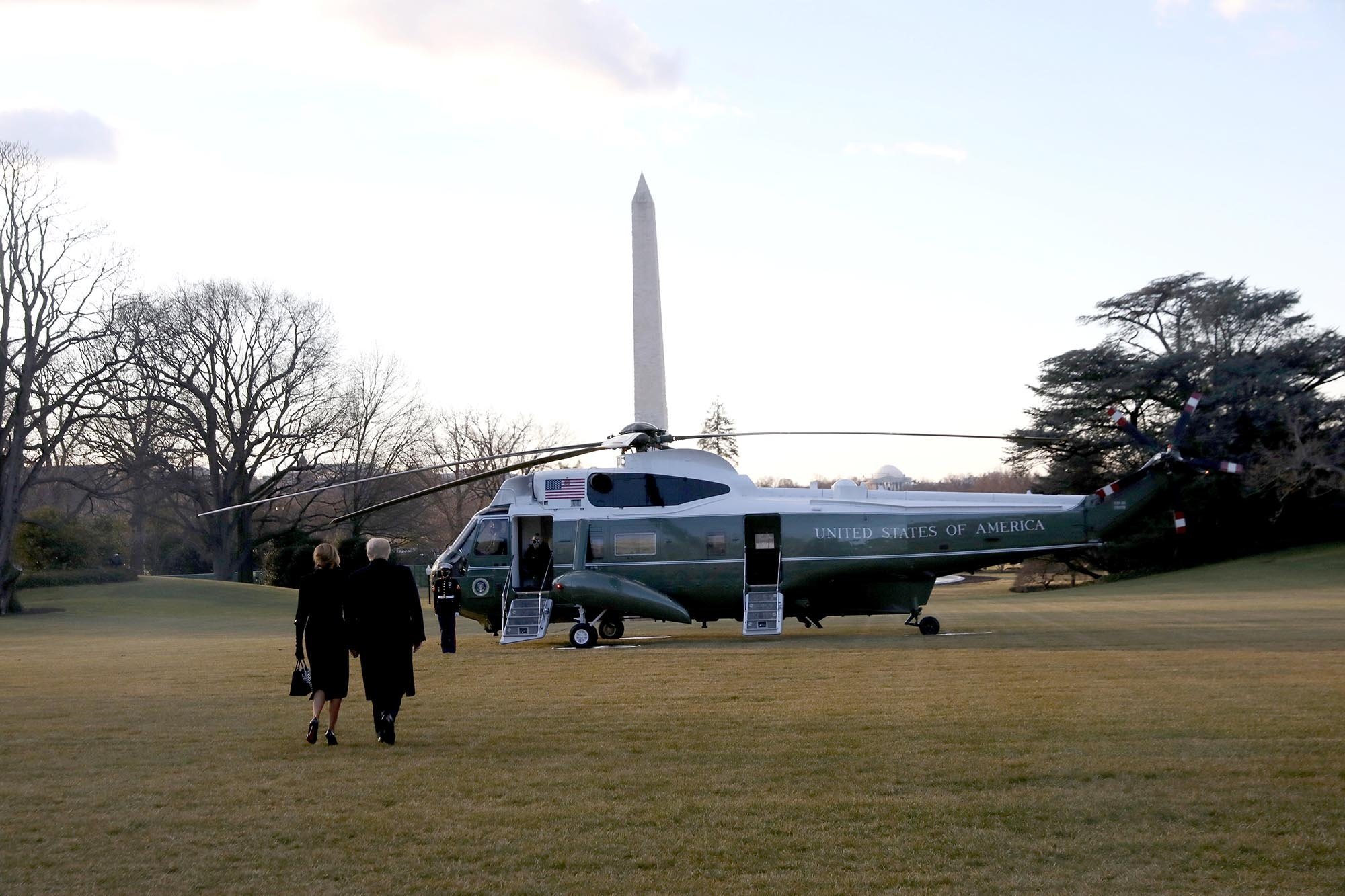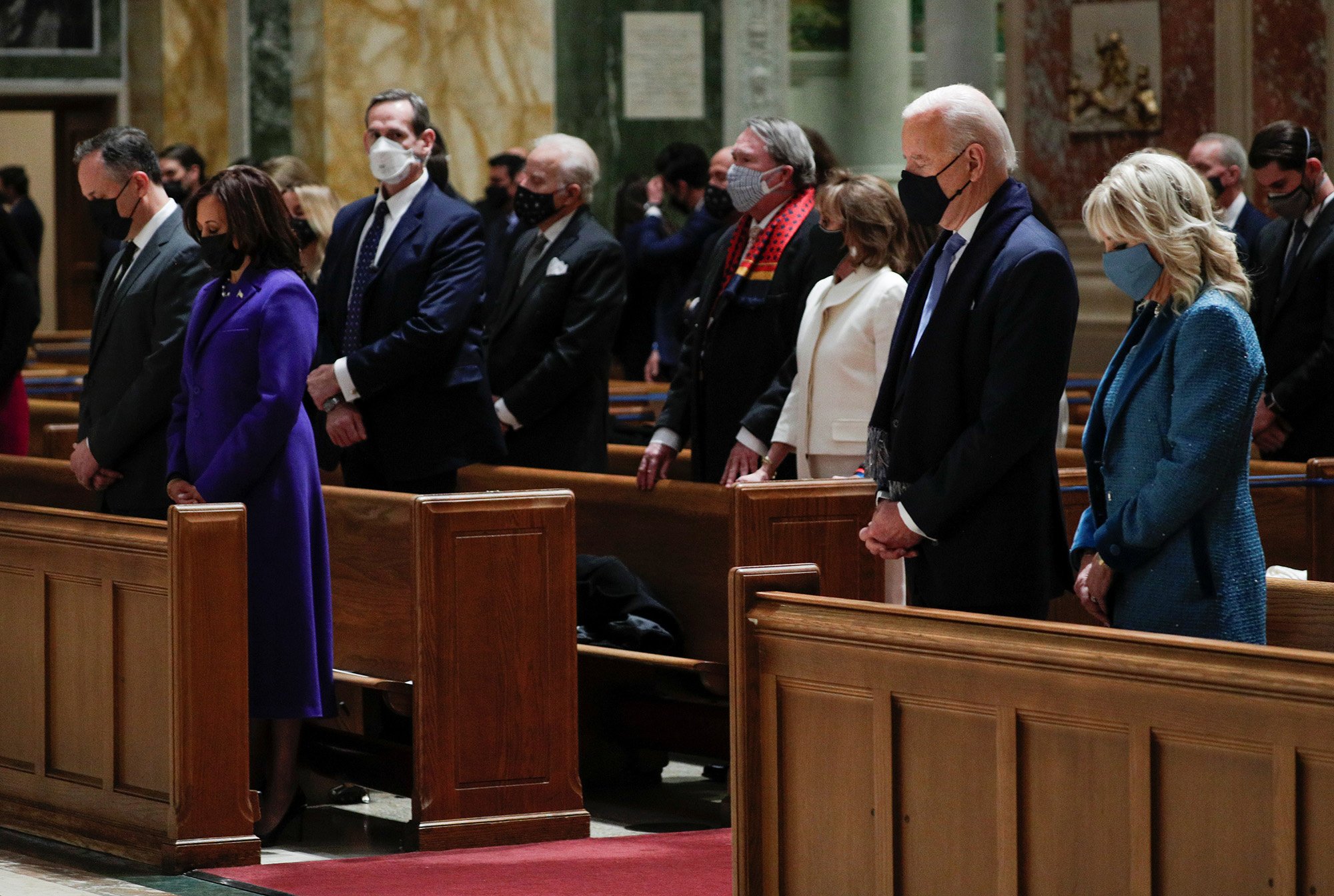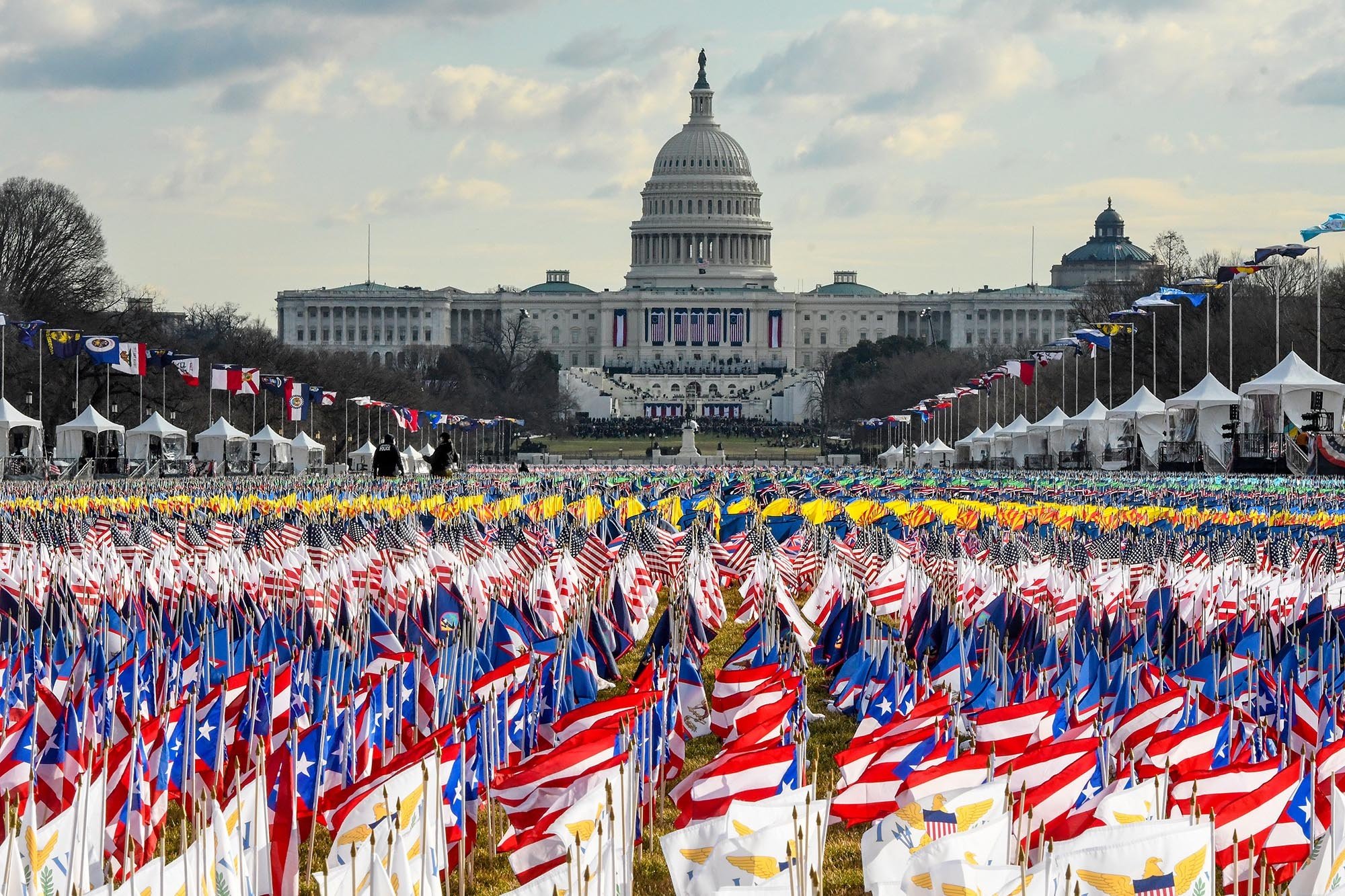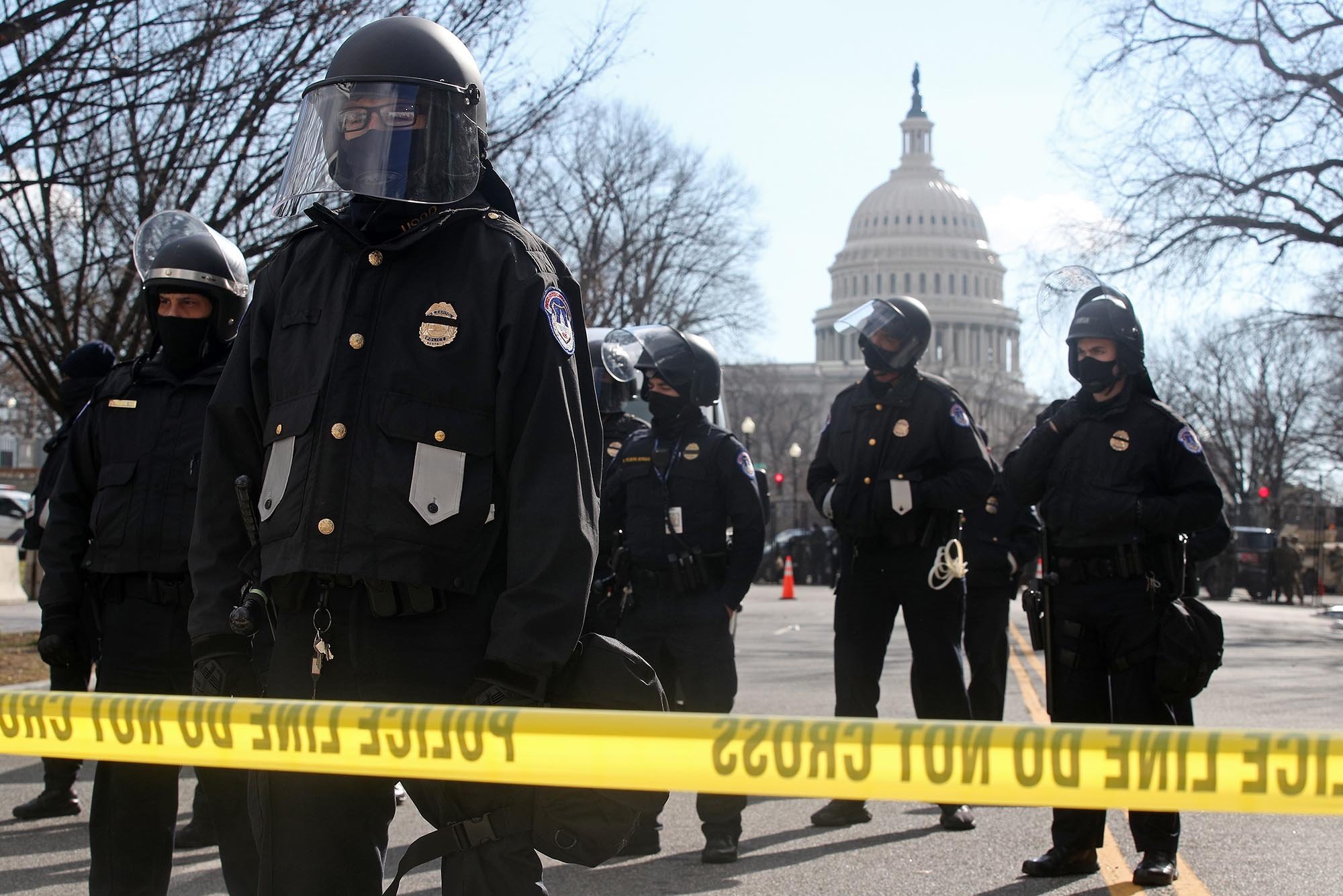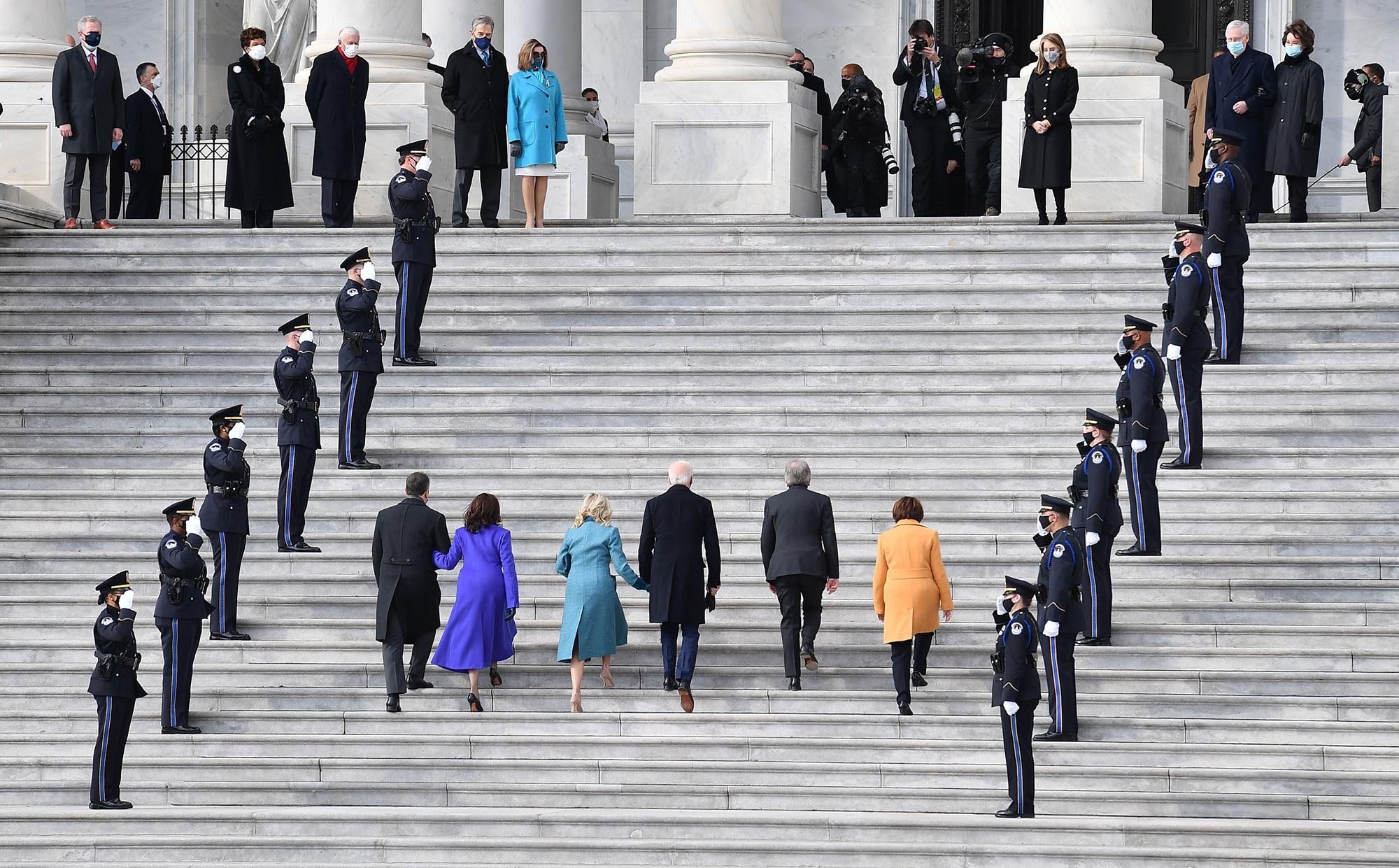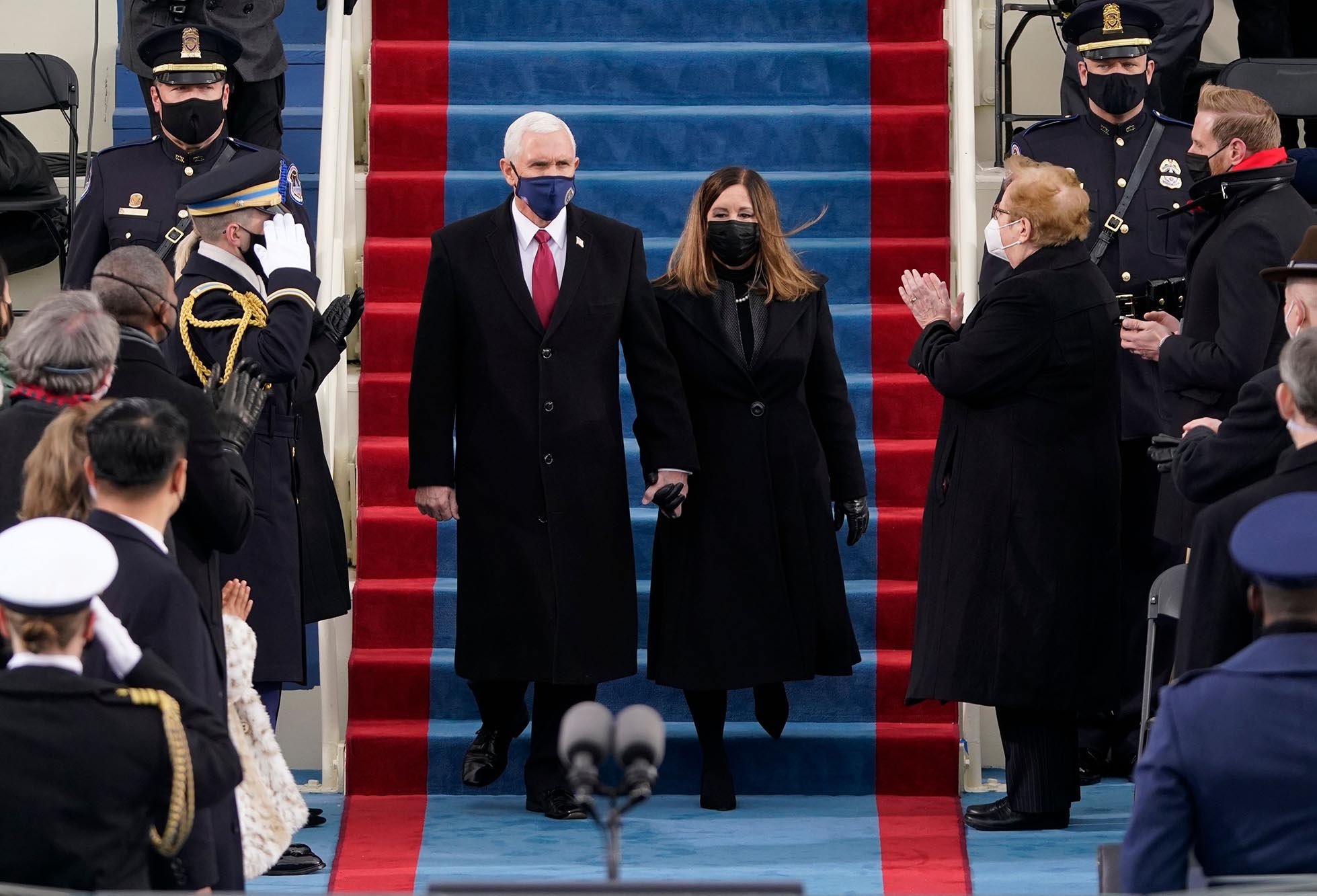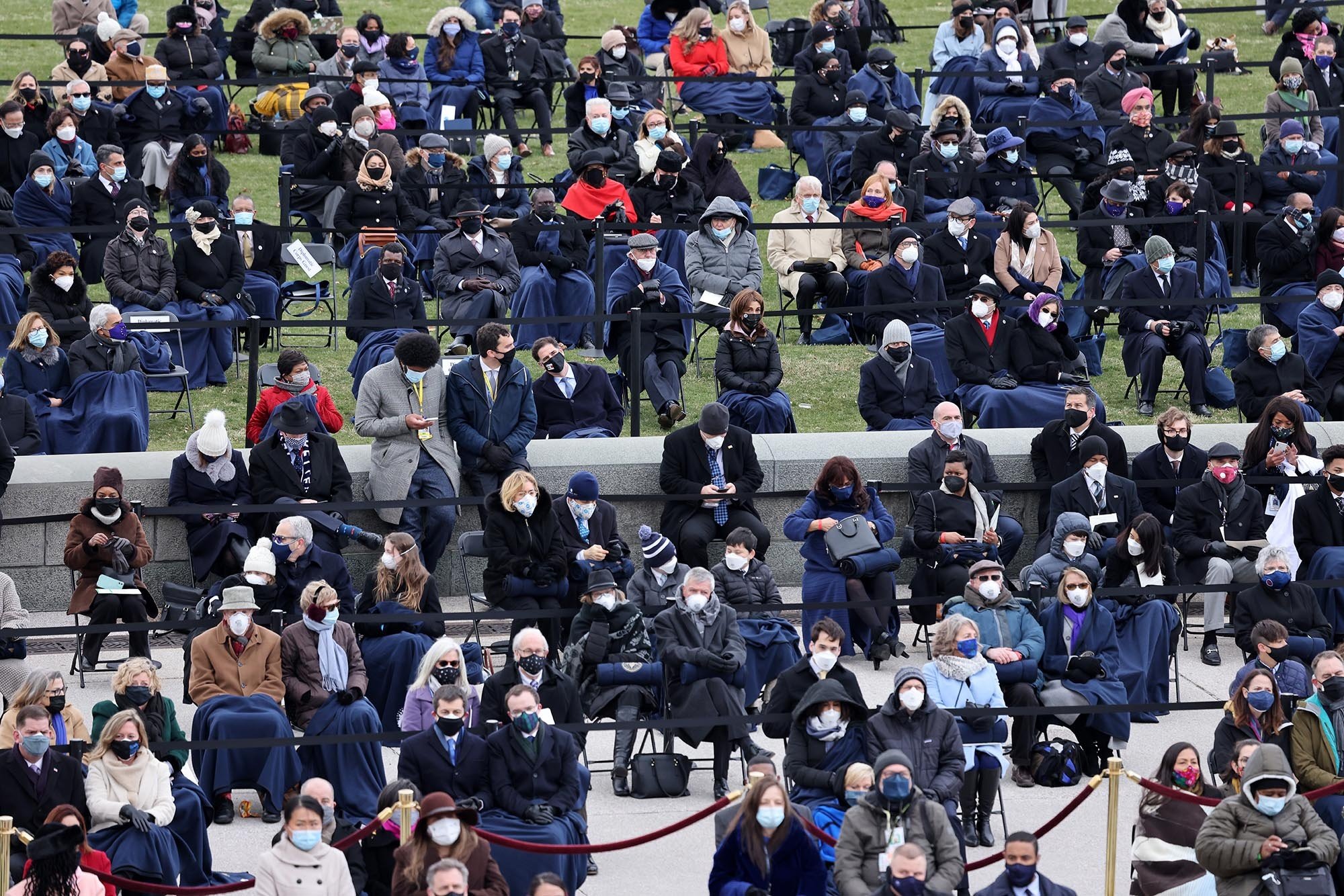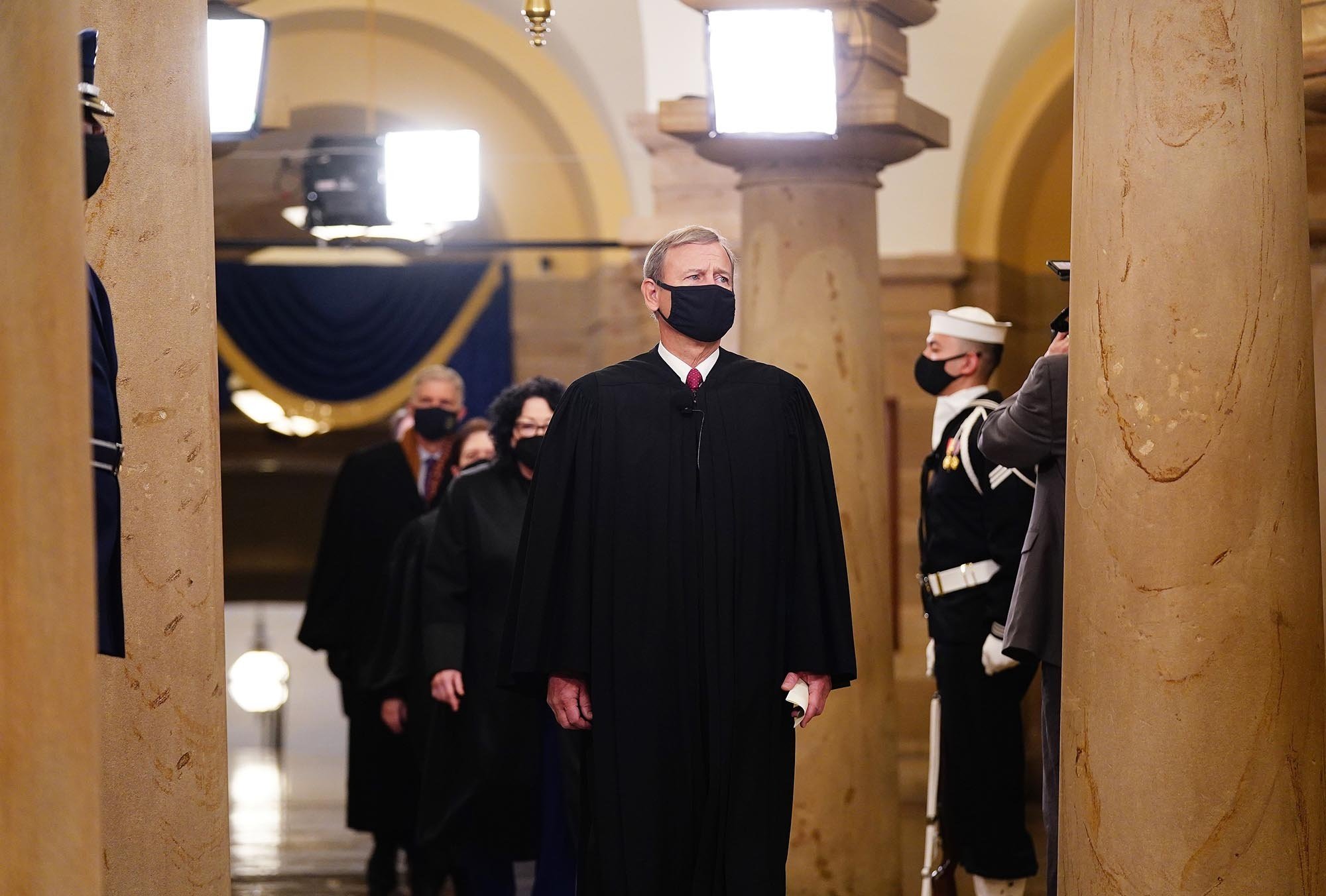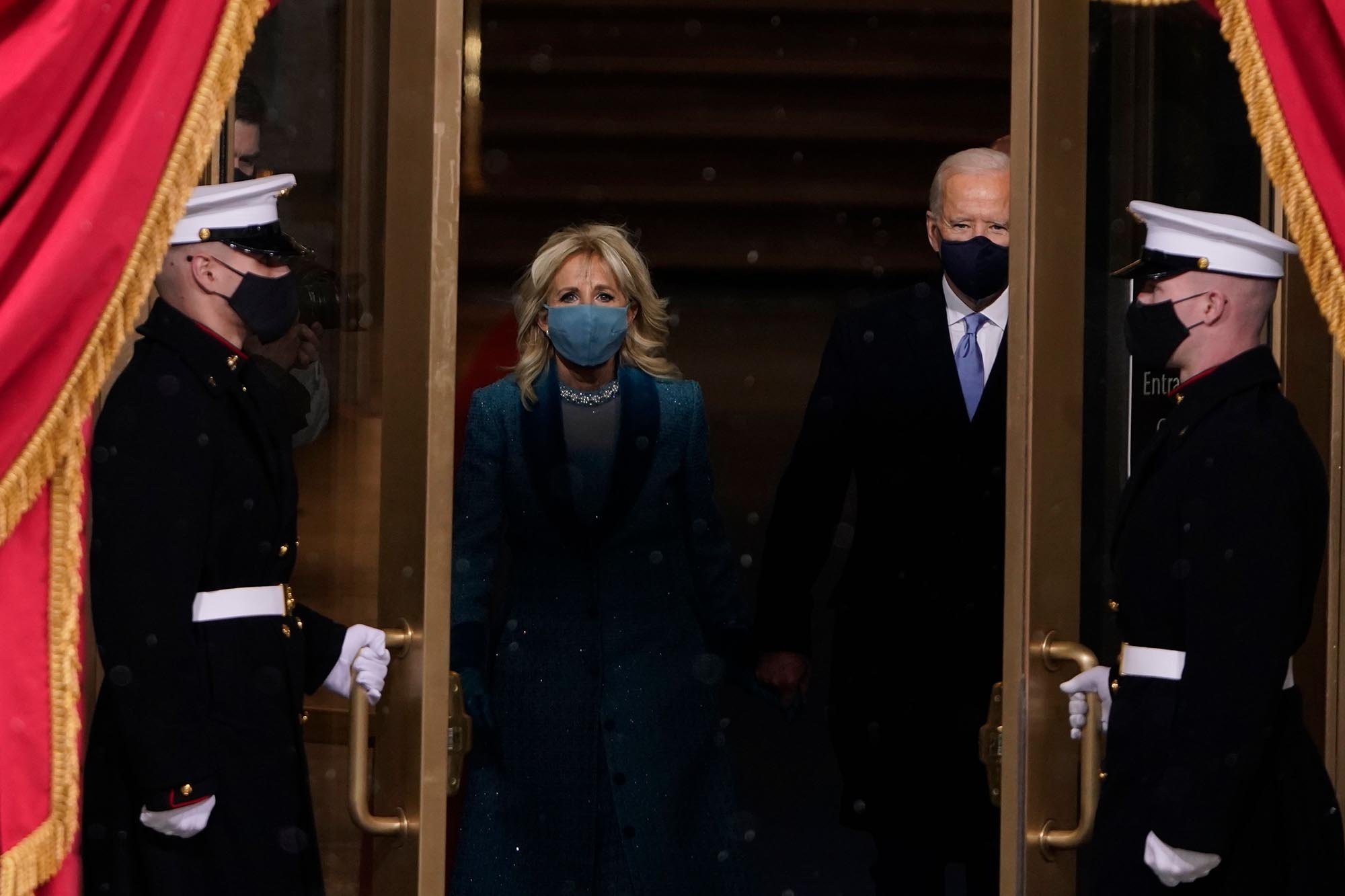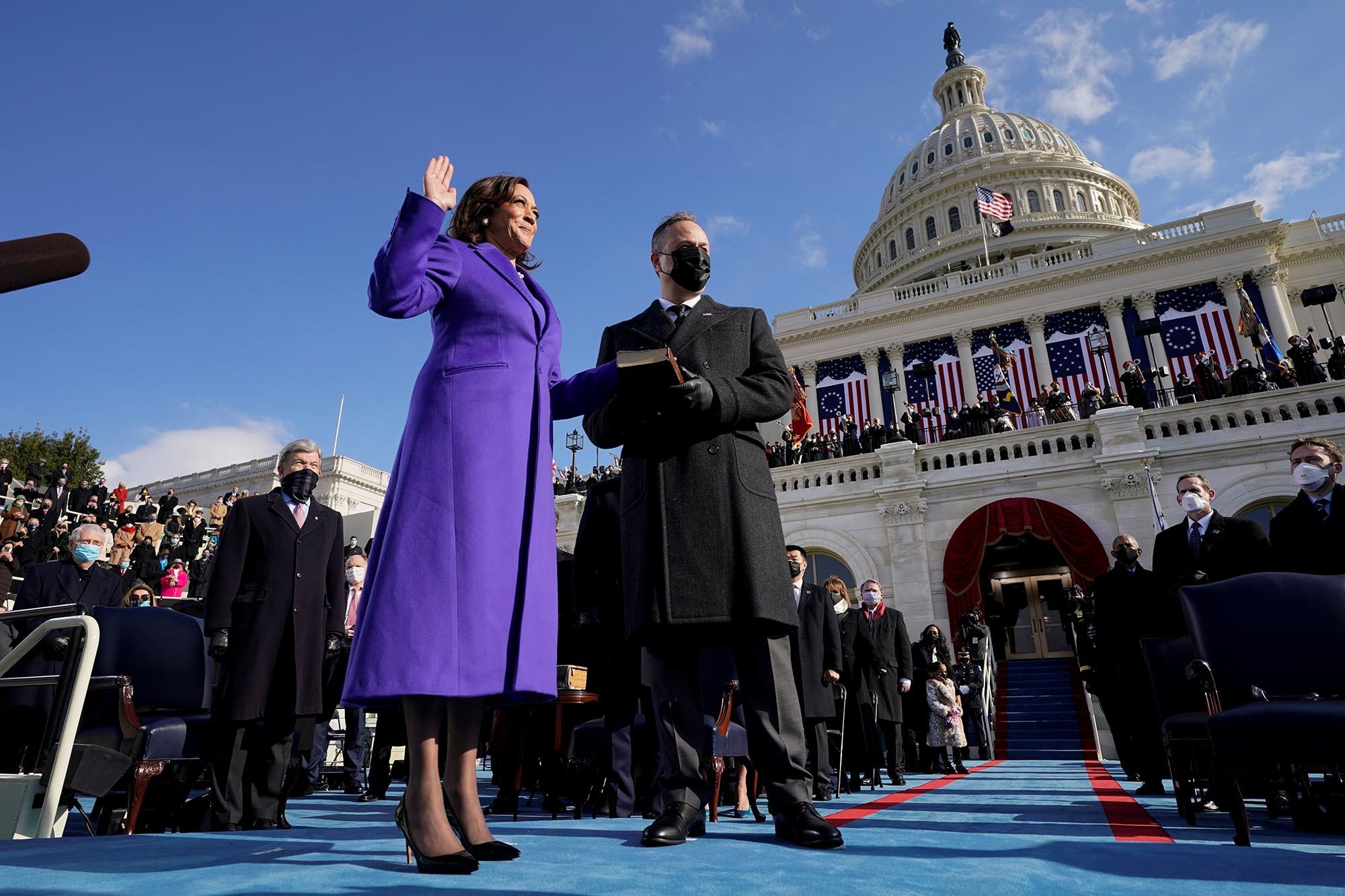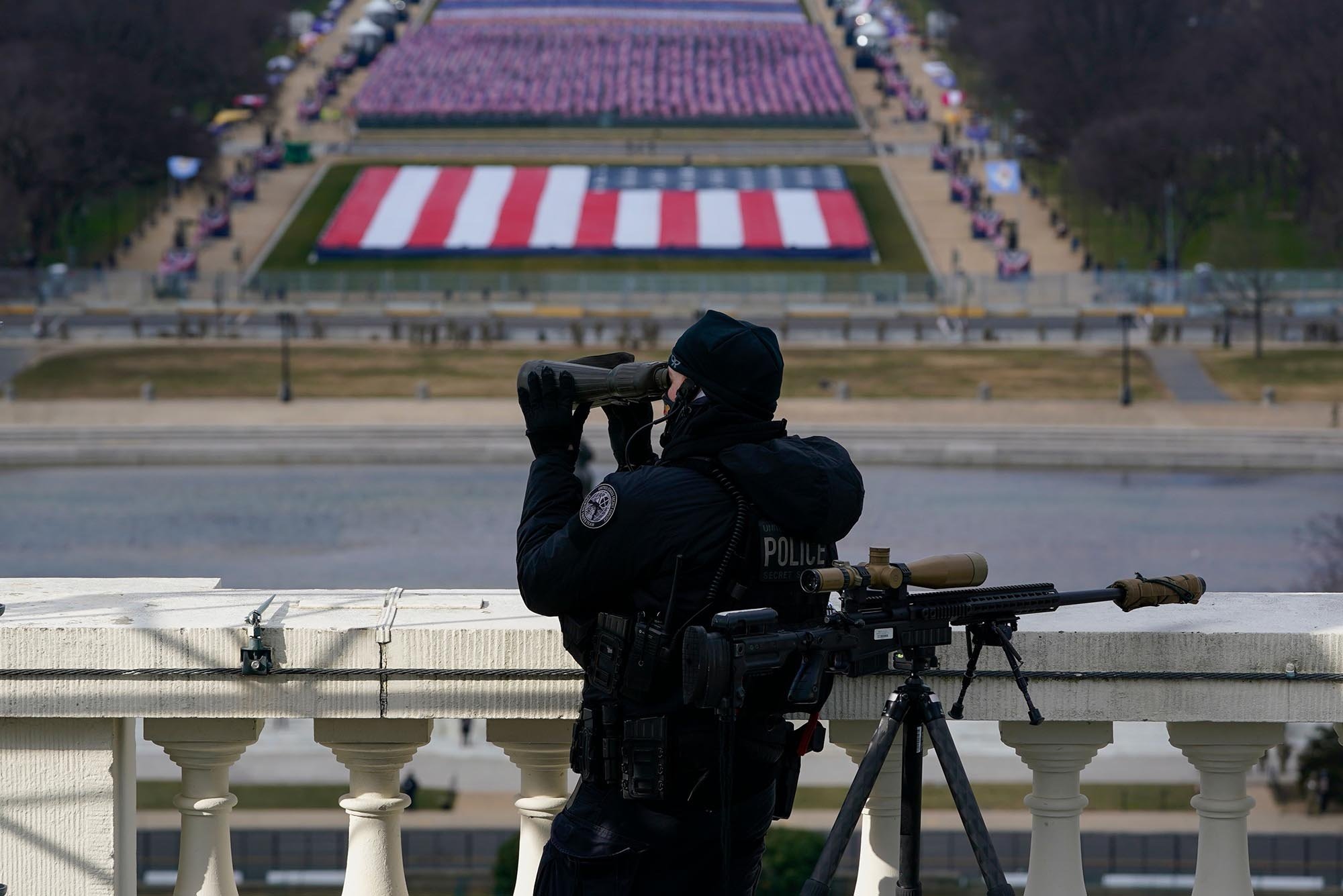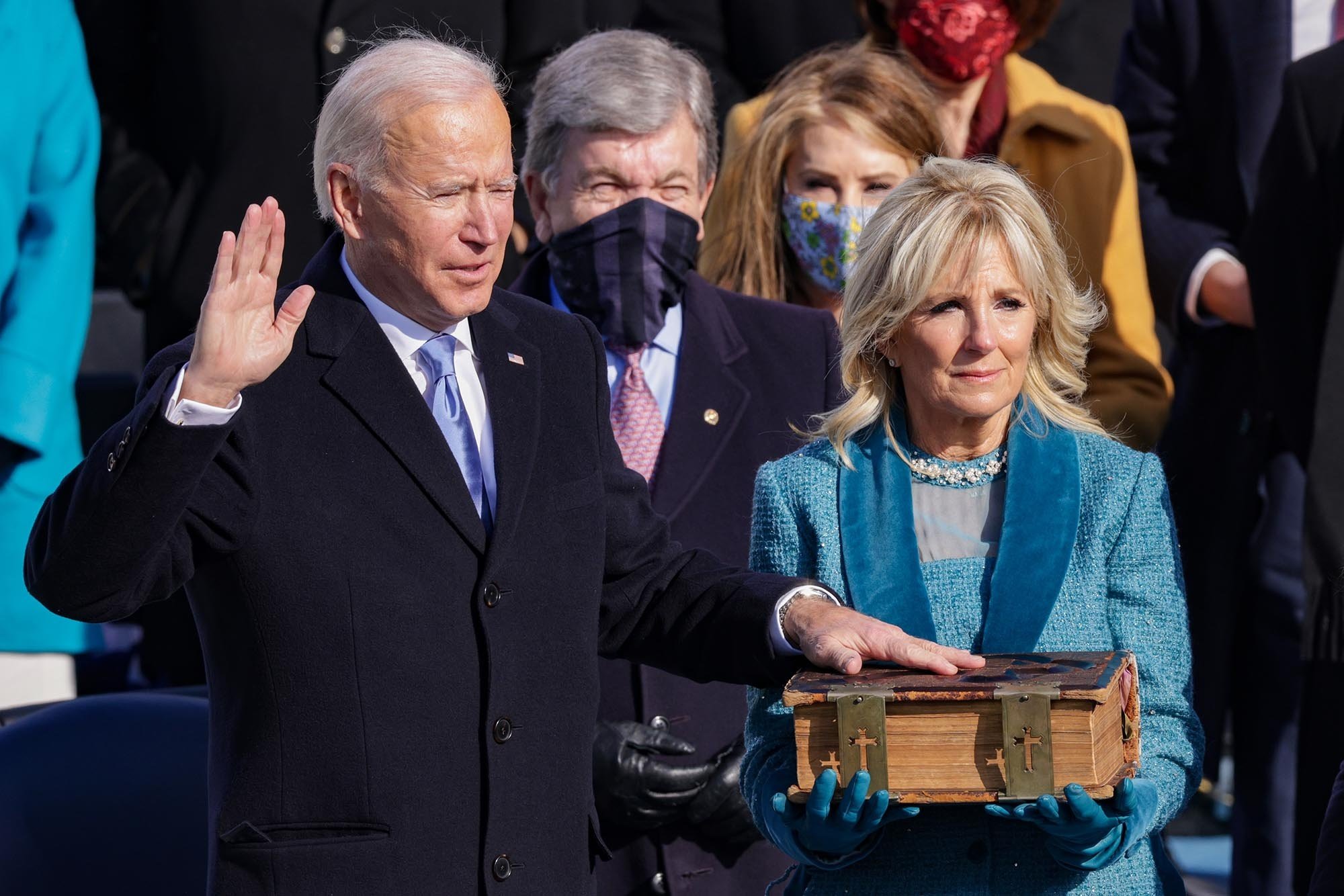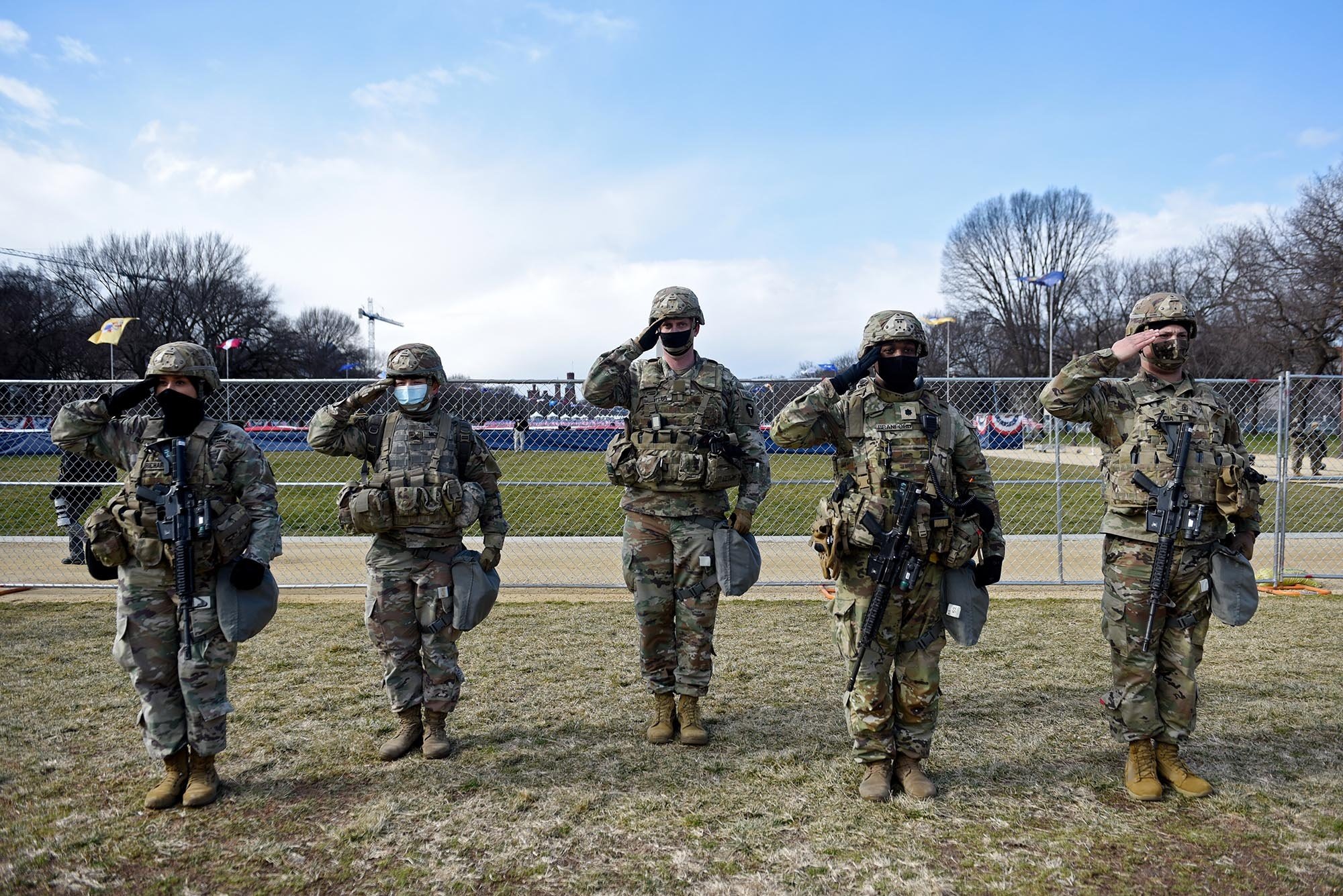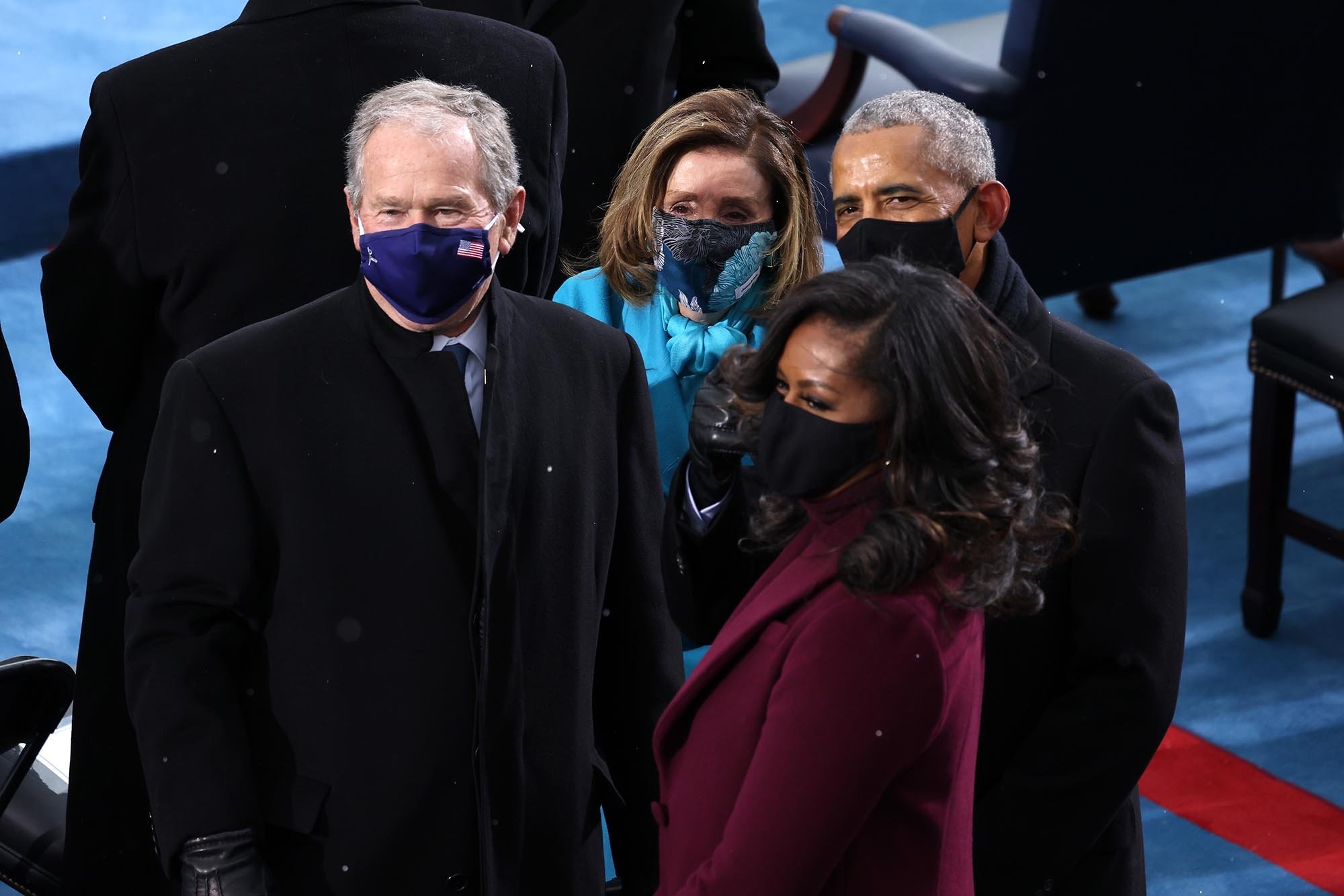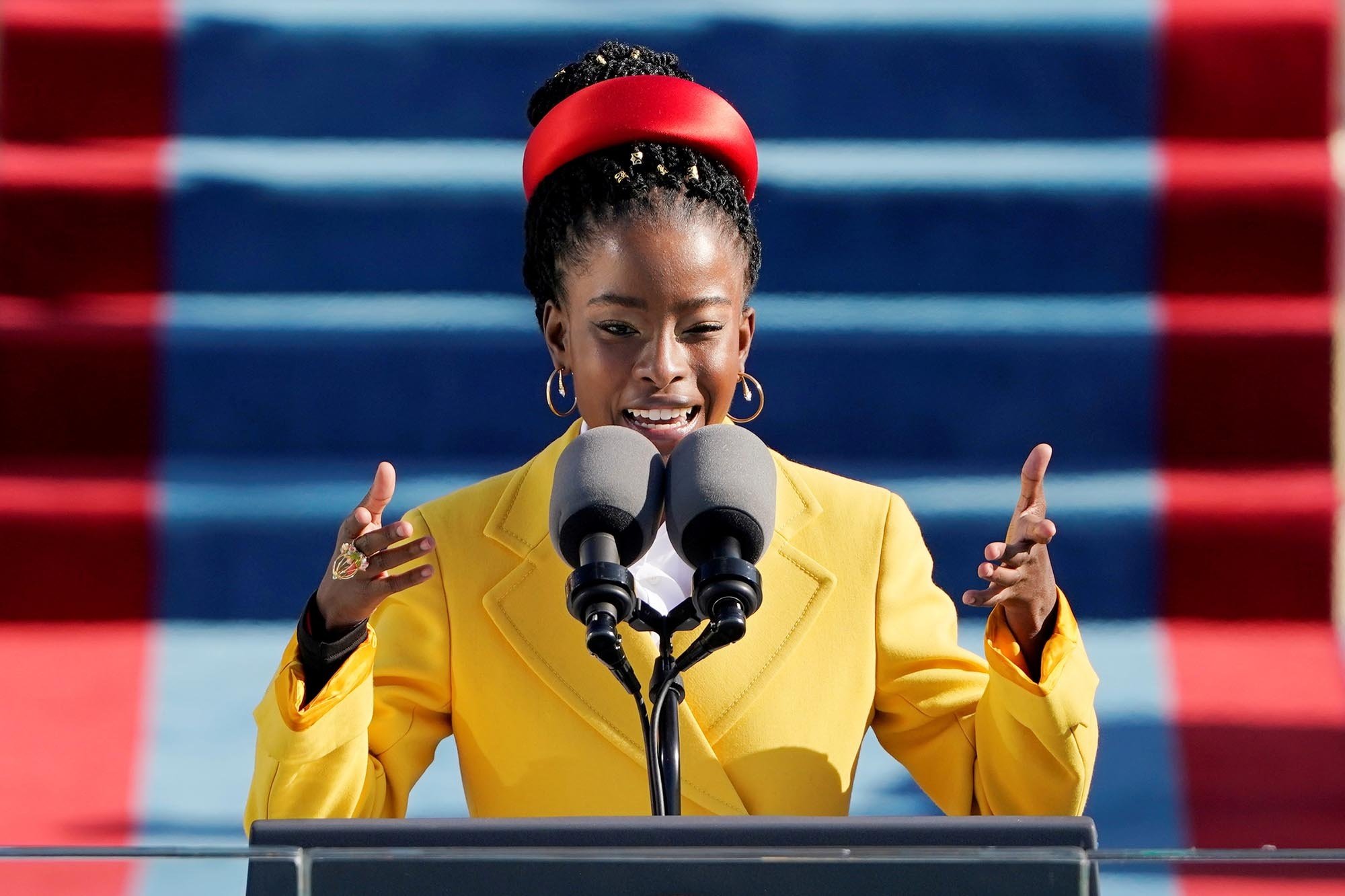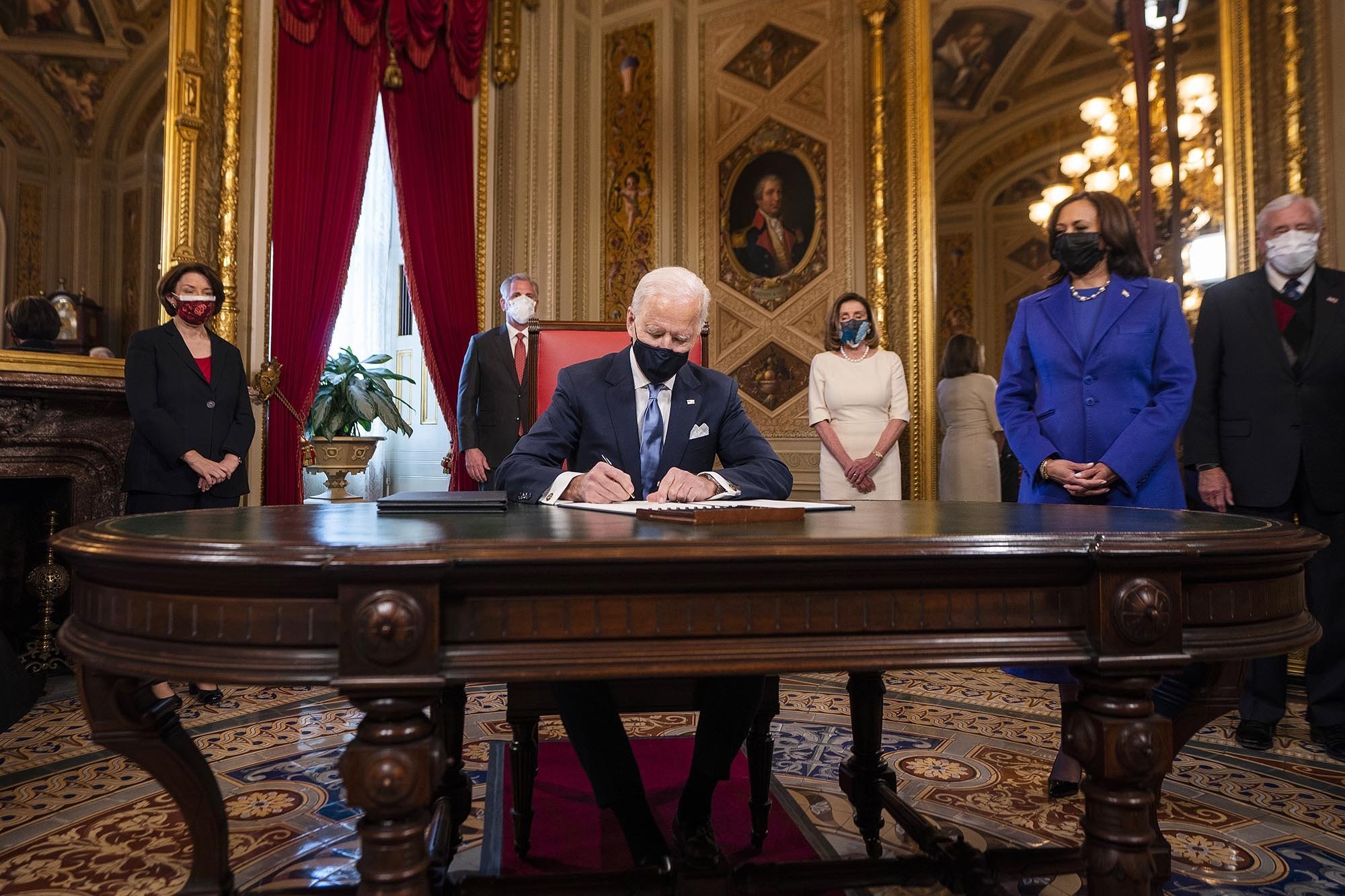In Brief
The Biden-Harris Inauguration: A Tense Tableau
The inauguration of President Joe Biden was unlike any U.S. power transition in modern times, providing stark imagery of a country at a crossroads.
The U.S. presidential inauguration is typically a showcase to the rest of the world of how healthy democracies fulfill one of their core functions. However, for many watching the 2021 handover of power, it offered a distressing tableau of a system under strain.
Maximum Security
Security is always the top concern at inaugurations, but it was more so than ever this year following the deadly insurrection at the U.S. Capitol only a fortnight ago.
More on:
With the threat of right-wing violence looming, along with the potential for crowds to spread COVID-19, interagency security planners—led by the Secret Service—cordoned off much of downtown Washington, DC, with steel fencing, concrete barriers, and military vehicles. The National Guard presence was boosted to some twenty-five thousand troops. By comparison, about ten thousand Guard members were deployed to the capital for President Barack Obama’s first inauguration; about eight thousand for President Donald J. Trump’s.
Along the National Mall, where normally there would stand throngs of boisterous supporters of the incoming administration, there was instead a solemn tribute to the more than four hundred thousand Americans who have died as a result of the pandemic.
Absent Incumbent
Another American tradition has been the attendance of outgoing presidents at inaugurations to welcome their successor to their new role, even if the incumbent was defeated in a close election. President Trump declined to do so, claiming to the very end of his term that he won the 2020 election.
However, Vice President Mike Pence attended the inaugural ceremony, as did many other Republican leaders, providing an important display of bipartisanship. And many of the other customs were upheld, including the attendance of past presidents, vice presidents, and Supreme Court justices.
Visions of Hope
There were also some extraordinary firsts at the 2021 inauguration, which reminded audiences at home and abroad of what America strives to be. Kamala Harris became the first woman, first Black person, and first South Asian person to become vice president; and she was sworn in by Sonia Sotomayor, the first Latina Supreme Court justice. Amanda Gorman, the first national youth poet laureate, delivered her poem “The Hill We Climb.”
More on:
In his inaugural address, President Joe Biden acknowledged the deep divisions that have perennially tested the United States, but said the country has only grown stronger by working through them. Speaking directly to audiences abroad, he said that his administration will “repair our alliances and engage with the world once again,” leading “by the power of our example.”
 Online Store
Online Store

